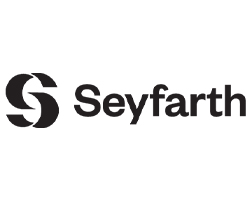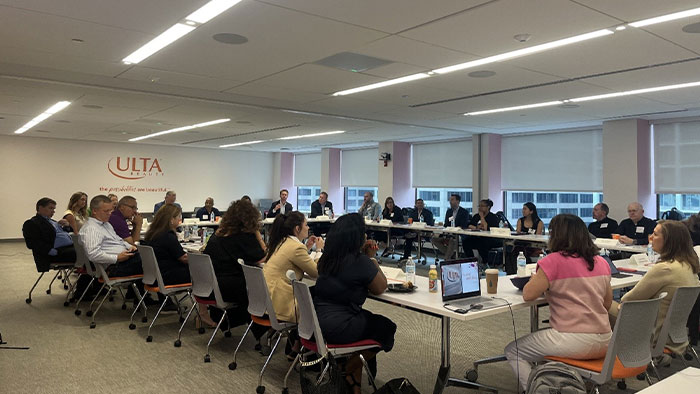PRO Act Series: Secondary Activity
MORE OF THE GOOD (FOR UNIONS), THE BAD, AND THE UGLY
- By [ Evan Armstrong ]
- 03/04/2021

In this ongoing series about the PRO Act, we’ll shine a light on why this legislation is so harmful, and why retailers are advocating instead for modernized federal workforce policy that enables the industry to continue investing in people and communities. The below insight, which focuses on secondary activity under the PRO Act, was provided by Glenn J. Smith and Kyllan B. Kershaw. Glenn and Kyllan are partners at Seyfarth Shaw LLP and lead the Firm’s Labor Management Relations practice group.

The Good (For Unions): Legalizes Secondary Activity
The PRO Act would legalize secondary boycotts, which are currently unlawful. A “secondary boycott” originates when a union engages in a labor dispute with an employer (the ‘primary’ employer). The union—in order to place pressure on the primary employer—seeks to target uninvolved parties who deal with the primary employer, such as landlords, vendors, and customers (‘secondary’ or ‘neutral’ parties). A union engaged in a secondary boycott uses economic coercion in an attempt to involve a neutral in the dispute between the union and the primary employer.
In order to maintain industrial peace and stability, as well as legitimate objectivity in labor disputes, the National Labor Relations Act (“NLRA”)_ prohibits secondary activity (picketing, strikes and boycotts) against third party employers and contractors. Under relevant National Labor Relations Board (“NLRB”) precedent, unions must direct their strikes and economic actions at the primary employer whose employees they represent. Currently it is unlawful for unions to picket and boycott neutral companies, such as contractors, vendors, and other businesses, in order to exert bargaining pressure on the primary employer. In other words, the NLRA prohibits unions from engaging in peaceful picketing, strikes, or boycotts aimed at companies that do business with their primary employers (or in solidarity with workers of other employers). The PRO Act would end these prohibitions that have long protected retail-facing employers.
The Bad: PRO Act Seeks to Open Pandora’s Box With Regard to Secondary Activity
This full 180 departure from legal precedent means that neutral, innocent and unrelated bystanders - including employers, vendors, contractors, and suppliers – uninvolved in a particular labor dispute, can be picketed and boycotted by unions to give the union additional leverage when bargaining with the primary employer. Under the PRO Act, even if your employees did not choose to be represented by a union, you could find your business subject to strikes and boycotts without legal recourse.
The Ugly: Secondary Activity Will Likely Inflict Economic Harm upon Retailers
For retail facing employers, this could mean legally-sanctioned activity by labor unions seeking to pressure customers not to shop at an establishment solely because a neutral retailer has a business relationship with another employer (for instance a building contractor working on site) that is involved in an underlying labor dispute with a union. In addition to inconveniencing customers, permitting such activity illustrates and empowers unions in a way that is completely misguided. Indeed, the whole concept of the NLRA is to promote industrial peace. Permitting picketing, strikes, and boycotts directed at employers who have nothing to do with the primary labor dispute of another employer promotes industrial chaos. Allowing secondary activity aimed at a neutral retailer may cause significant economic impact for the neutral retailer, including business closures and severe decreases in foot traffic.
If the PRO Act passes and removes the existing protection that neutral companies currently enjoy in relation to other companies’ labor disputes, the increased leverage for labor organizations could significantly shrink the non-union retail industry in the United States. In short, the PRO ACT puts the interests of labor organizers and powerful unions before the rights of employees and employers.
RILA and its members are focused on building a 21st century retail workforce that is diverse, innovative, and skilled. Many of the provisions of the PRO Act, including legalizing secondary activity, are harmful to employees who aren’t interested in unions and want to participate in a modern workforce. The country’s employees deserve the right to their privacy and freedom not to be forced to join a union. We encourage elected leaders in Congress to reject the PRO Act and instead work with employers and employees on proposals that benefit the entire retail industry.
For more information about RILA’s workforce policy initiatives, please contact Evan Armstrong.
Tags
-
Workforce
-
Investing in People
-
Public Policy
-
Retail Works for All of Us
-
Human Resources
-
PRO Act


